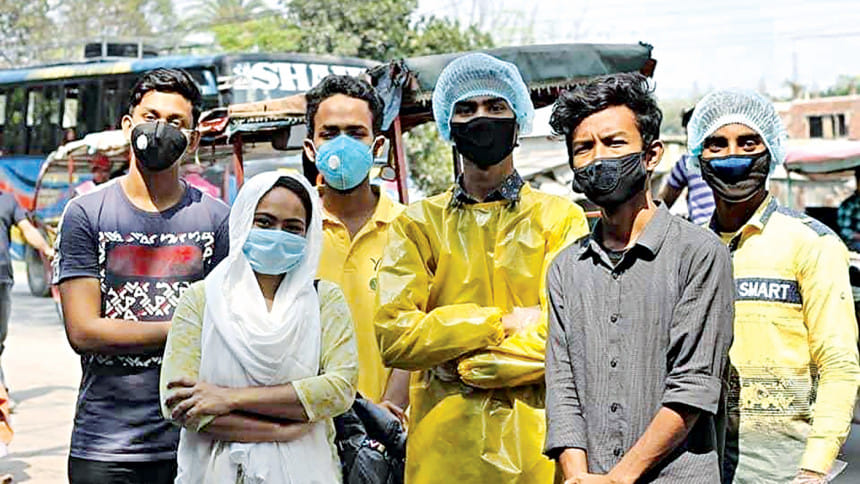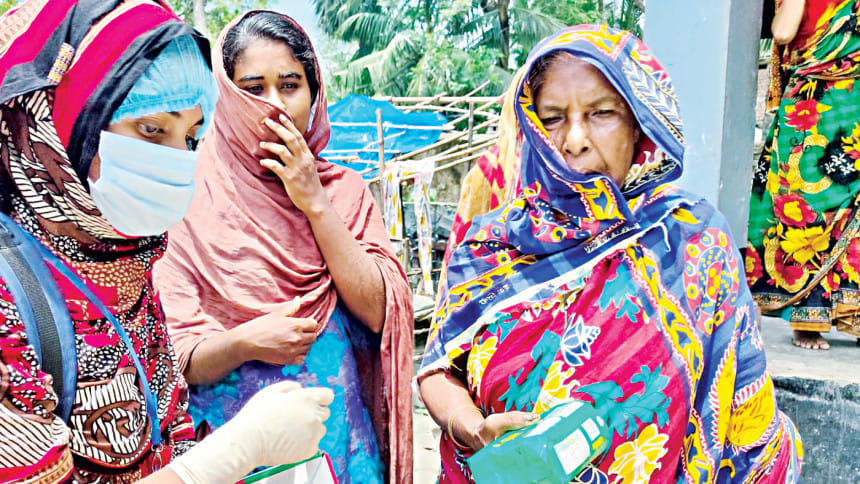Enabling children and communities throughout the country

Founded in September 2019, AHC - Arise Help for Child Foundation enables underprivileged children in Bangladesh, in different ways. In just one year, the foundation has assembled 700 active volunteers across the country. Their projects mainly revolve around access to healthcare, clean water, sanitation, nutrition and ensuring a cleaner environment, among other things.
"Our journey began with a campaign to feed 15 to 20 children under the project, Onnojog, a food bank to collect, store and distribute meals to underprivileged communities across the country," says Shahnaz Raihan Summy, Communication Secretary, AHC Foundation. Starting from Gazipur, Onnojog has been working in collaboration with public and private sectors, to combat food and hunger crisis in the country.

One of the main aims of the foundation is to ensure education for 100 underprivileged children across the eight divisions of Bangladesh, with each campaign lasting for 12 months. In these months, a child is supported with admission fees, monthly tuition fees, school supplies and sanitation drives. Children on the autism spectrum receive support in the form of wheelchairs, access to special educational institutions and therapy, among other things.
One of their ongoing initiatives, Project Banolota, aims to mitigate the social injustices women and transgender women face in their everyday lives. Providing sanitary napkins and raising awareness about menstrual hygiene and domestic violence, Project Banolata was initiated in Patuakhali. AHC Foundation also aims to execute a campaign for different marginalised communities, enabling them to buy sanitary napkins at a discounted price.
"Women in rural areas cannot usually afford sanitary napkins. During the ongoing pandemic, this poses a major threat to their health," shares Nusrat Jahan Irani, Patuakhali Unit Coordinator, Project Banolota.
Under Project Banolota, AHC Foundation launched their campaign, 'Shurokkha' recently, to raise awareness about menstrual hygiene and to support unemployed women. Starting with the slums of Patuakhali, Dinajpur and the Cyclone Amphan-afflicted areas of Satkhira, this campaign helped more than 200 women. The foundation also reached out to people in Gaibandha, Feni, Nilphamari, and Gazipur through this campaign, aiming to improve income opportunities and living conditions for women.
AHC Foundation also launched several projects to fight the coronavirus crisis. In March, their volunteers distributed masks, soaps, hand sanitisers and dry foods among underprivileged communities.
From April to May, under their campaign 'Compassionate Ramadan', AHC Foundation distributed care packages among destitute families. Each package included rice, pulses, oil, flour, potatoes, salt and soap bars, among other essentials. Around 114 families in Satkhira, Dinajpur and Khulna and 256 people in Nilphamari, Sylhet and Chattogram, benefitted from this project.
They also distributed iftar packages to 200 people in Chattogram and Nilphamari, and Eid gift packages to 136 families in Khagrachari, Mymensingh, Feni, Cox's Bazar, Satkhira, Sylhet and Joydebpur.
Moreover, AHC Foundation organised two health campaigns in Dinajpur, where volunteers, medical students, doctors and health assistants facilitated free check-ups and diagnoses, along with prescriptions. Their health programme aims to provide free blood grouping and free prescriptions for people in need.
Their event, Clean Campus, arranged in Dinajpur, in partnership with Brikkho of Collegiate Girl's High School and College and Oboshor, focused on raising awareness about the environment. In exchange for bags filled with plastic waste, the volunteers provided students with books, and seedlings to plant.
"We aim to meet the targets of SDGs 1 through 6 by 2030 and take the responsibility of the education of 20,000 children," says Hashem Badhon, Founder and President, AHC Foundation.
In a short span of time, AHC Foundation has aided several districts of Bangladesh. Their efforts to support underprivileged children and communities, are commendable.

 For all latest news, follow The Daily Star's Google News channel.
For all latest news, follow The Daily Star's Google News channel. 



Comments